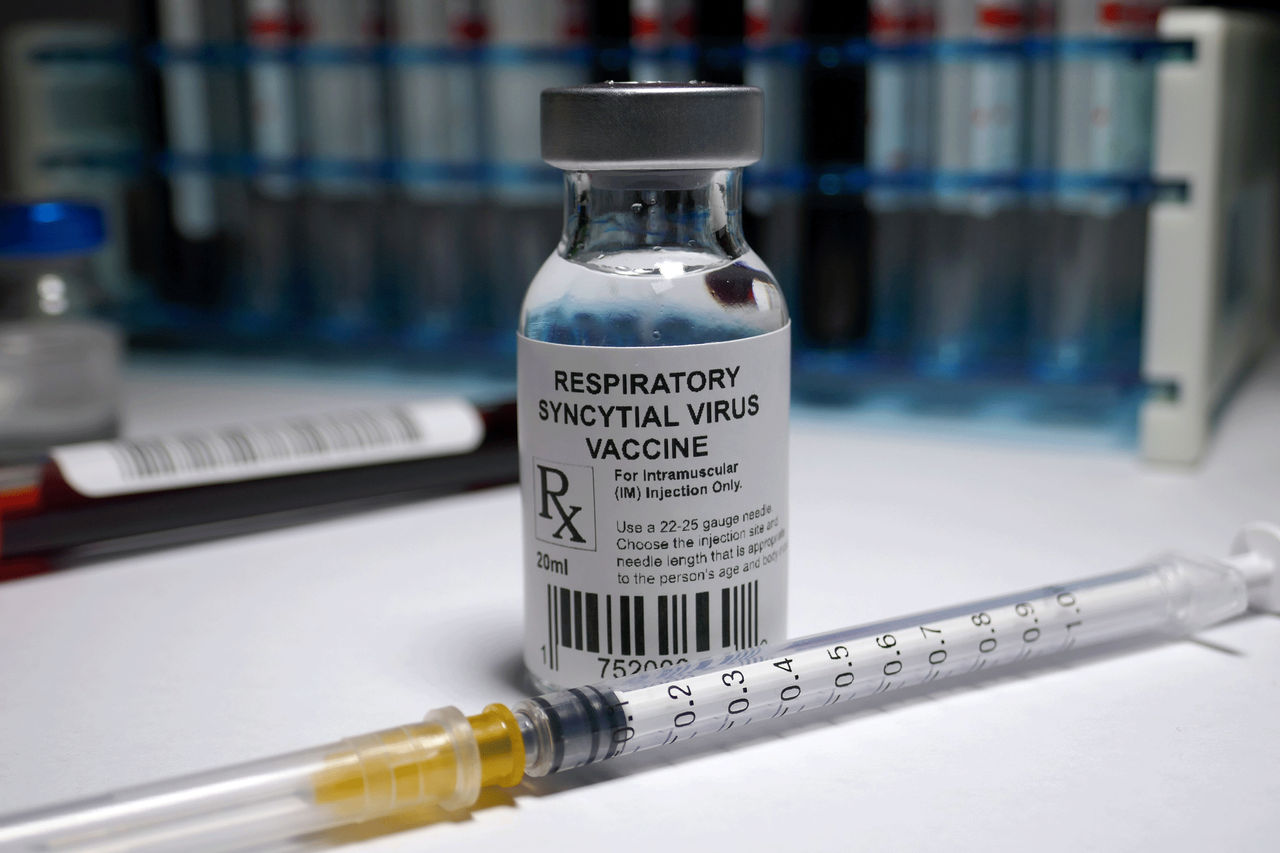Vaccines for Respiratory Syncytial Virus (RSV)

Should you arm yourself or your infant against respiratory infections caused by this common virus? Here's what you should know about the vaccines for RSV.
Respiratory syncytial virus (RSV) is such a common infection that almost every child in the United States will catch it by age two, according to the National Institute of Allergy and Infectious Disease.
In most people, RSV is a mild illness that gets better within a week. But for children with chronic medical conditions like heart and lung disease and adults over 60, it can turn into a serious illness. Nearly 60,000 children under age five are hospitalized with RSV each year, and 14,000 older adults die from complications related to the virus.
YOU MIGHT ALSO LIKE: What Is Respiratory Syncytial Virus?
What vaccines are available?
Two vaccines are approved to prevent lower respiratory tract infections from RSV:
- Abrysvo is for use during weeks 32 to 36 of pregnancy to prevent RSV lung infections in newborns up to 6 months. It’s also approved for adults 60 years and older.
- Arexvy is for adults 60 years and older.
Like other vaccines you may have received, the RSV vaccines introduce an inactivated protein from the virus into your body. That protein stimulates your immune system to recognize the virus if you’re exposed to it in the future, which helps to protect you from severe infection.
With Abrysvo, the mother’s immune system makes antibodies that pass to her unborn baby.
Two drugs also protect against RSV infection:
- Nirsevimab-alip (Beyfortus) is recommended for newborns and infants under eight months old who are going into their first RSV season, and for children up to two years old who are still vulnerable to infection during their second RSV season. One shot protects children for five months.
- Palivizumab (Synagis) is recommended for children under age two with medical conditions that put them at high risk for serious RSV infections. Children need the vaccine once a month during RSV season.
Both medicines are monoclonal antibodies, proteins that mimic the natural immune system proteins that help your body fight off the virus.
Why should you (or your children) get vaccinated?
RSV is a highly contagious virus. You can catch it when you come into contact with infected droplets from the coughs or sneezes of someone who’s sick, or when you touch a surface that’s been contaminated with the virus and then touch your eyes, nose, or mouth.
In most healthy people, RSV causes a mild respiratory infection. But in infants, older adults, and people with chronic medical conditions, the virus can cause complications like:
- Bronchiolitis — inflammation of the small airways in the lung
- Pneumonia — a lung infection
- Worsening of chronic conditions such as asthma, chronic obstructive pulmonary disease, and heart failure
RSV infections can be serious enough to require hospitalization or cause death.
How effective are the vaccines?
In a study of almost 25,000 people in 17 countries, Arexvy lowered the risk of lung infections from RSV by nearly 83 percent compared to a placebo (inactive shot). The vaccine was effective against both subtypes of RSV, RSVA and RSVB. It also worked well in people with chronic conditions.
Another study involving nearly 7,400 pregnant women, compared Abrysvo to placebo. The vaccine was nearly 82 percent effective at preventing severe lung infections in newborns within the first three months and almost 70 percent effective at preventing infections during the first six months of life.
If you’ve had RSV in the past, the vaccine can prevent future infections.
What are the risks?
The most common side effects in studies of the RSV vaccines were mild, such as:
- Pain and swelling at the injection site
- Headache
- Tiredness
- Muscle pain
- Nausea
Abrysvo carries a slight increased risk for preterm birth. That’s why it isn’t recommended before the 32nd week of pregnancy.
Before getting the vaccine, tell your doctor or pharmacist if you’ve ever had a severe allergic reaction to a medicine or vaccine or if you are allergic to any of the ingredients in the RSV vaccine.
Signs of a severe allergic reaction include:
- Hives
- Swelling in your face and throat
- Difficulty breathing
- Fast heartbeat
- Dizziness
- Weakness
Get to the nearest emergency room or call 9-1-1 right away if you have any of those symptoms.
You can get the RSV vaccine if you have a minor illness, like a cold. Wait to get vaccinated if you have a more severe infection.
What you can do
Talk to your doctor about getting vaccinated against RSV if you’re 60 or older or pregnant. You can get the RSV vaccine at the same time as other vaccines. Make sure you understand the benefits and risks of the vaccine before you (or your child) get it.
Updated:
November 06, 2023
Reviewed By:
Janet O'Dell, RN